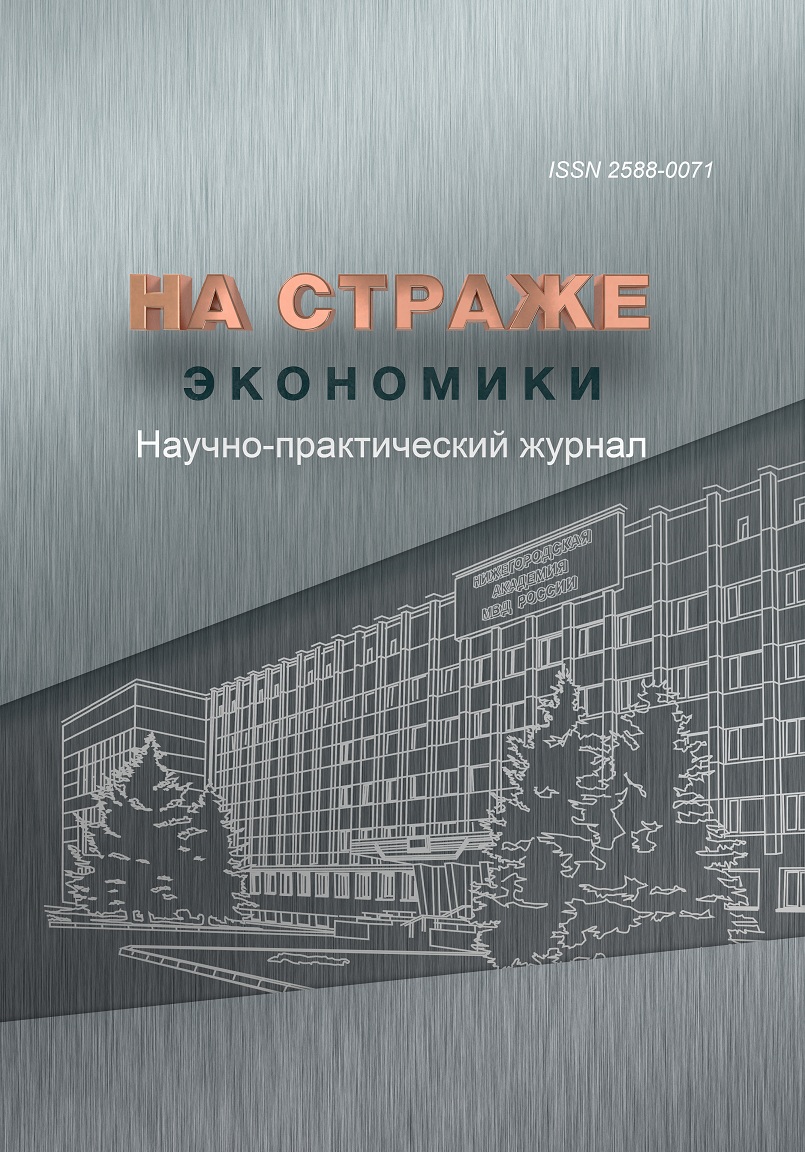employee from 01.01.2020 until now
St Petersburg, St. Petersburg, Russian Federation
The introduction of high technologies into life has led to the emergence of factors that contribute to the growth of the criminalization of society and the economy, such as rising unemployment, an increase in the time spent on the Internet, a jump in the number of purchases made through online trading platforms, a thirst for quick money or big discounts, etc. In addition, the acceleration of digitalization brought with it not only positive effects (post-pandemic economic recovery and growth in its stability), but also contributed to the active growth in the use of virtual space as a weapon of crime. As progress does not stand still, so the forms of remote crime are constantly being improved and modified, damaging the country’s economy and the well-being of the individual. Therefore, in order to build a reliable system for protecting the population from non-contact crime, a clear designation of its causal complex is necessary. The authors consider criminological and economic approaches to the determination of crime in the field of information and telecommunication technologies, and, relying on both domestic and foreign practical experience, on an interdisciplinary basis, they propose a classification of factors of remote theft of funds according to six criteria: organizational and technical, organizational and legal, socio-economic, moral, victim and political.
remote fraud, factors of criminalization, information technology, determinants of crime, economic security
1. Dzyubenko I. B. Exponential speed of technology development: collection of articles of the VI International Scientific and Practical Conference. Scientific public organization “digital science”. Novosibirsk, 2020. Pp. 94-104. (In Russ.)
2. The concept of the causes and conditions of crime in criminology. URL: https:stop-ham.com/prestuplenija/8929-ponjatie-prichin-i-uslovij-prestupnosti-v-kriminologii.html?utm_referrer=https%3A%2F%2Fyandex.ru%2F (accessed 15.02.2023). (In Russ.)
3. Engels F. Working movement. URL: https://www.rulit.me/books/tom-2-read-218903-224.html (accessed 05.02.2023). (In Russ.)
4. Prasolova M. Yu. Causal relationship as a sign of the objective side of the crime. New Legal Bulletin, 2019, no. 7 (14), pp. 34-37. (In Russ.)
5. Lee Ellis. Handbook of Crime Correlations. URL: https://translated.turbopages.org/proxy_u/en-ru.ru.86908d02-63d6caf3-36091ca8-74722d776562/https/www.overdrive.com/media/587244 (accessed 10.02.2023).
6. Sushkova I. A. Correlation and interconnection of the concepts “challenge”, “danger”, “threat”, “risk”. Economic security and quality, 2018, no. 4 (33), pp. 10-15. (In Russ.)
7. Sprague R. Identifying & mitigating fraud risks in a remote working environment. URL: https://cfma.org/articles/identifying-and-mitigating-fraud-risks-in-a-remote-working-environment (accessed 17.02.2023).
8. Forster H. European fraud report - payments industry challenge. URL: www.nets.eu/solutions/fraud-and-dispute-services/Documents/Nets-Fraud-Report-2019.pdf (accessed 09.02.2023).
9. Ivanova L. A. The growth of telephone fraud as a result of the availability of communications and factors affecting the detection of this category of crimes. Eurasian Law Journal, 2017, no. 12, pp. 220-222. (In Russ.)
10. Komarov A. A. Criminological aspects of fraud in the global Internet. Dissertation... candidate of legal sciences. Saratov, 2011. (In Russ.)
11. Zhmurov D. V. Cyber victim: classification features. All-Russian criminological journal, 2022, vol. 16, no. 4, pp. 463-472. (In Russ.)
12. Zhmurov D. V. General victimological prevention of cybercrime. Legal science and practice: Journal of Nizhny Novgorod Academy of the Ministry of Internal Affairs of Russia, 2022, no. 4 (60), pp. 135-142. (In Russ.)
13. Moskovtsev A. F. Methodological dead ends of modern criminology. All-Russian criminological journal, 2020, vol.14, no. 2, pp. 177-192. (In Russ.)
14. Sudakova T. M. Interdisciplinarity of criminology in the context of the methodological and structural transformation of science. All-Russian journal of criminology, 2022, vol. 16, no. 2, pp. 151-162. (In Russ.)











